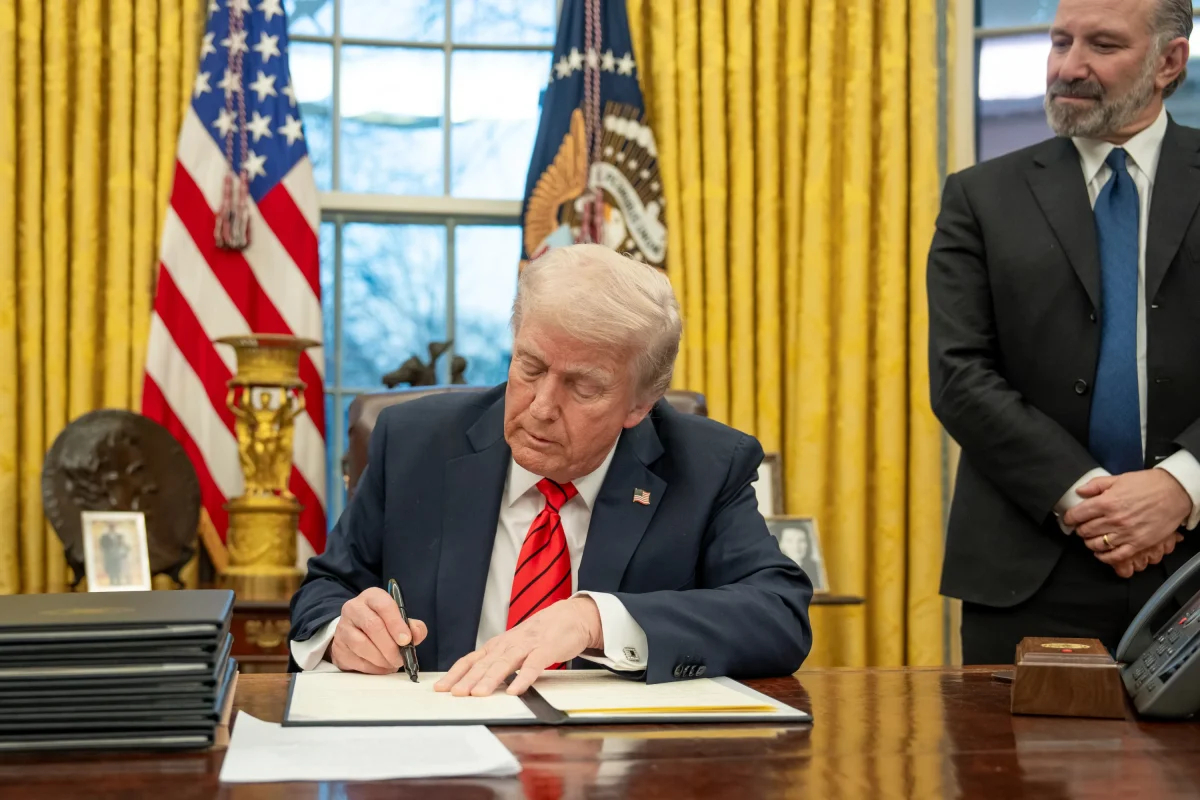Note: This is an opinion piece. The views expressed are the author’s only and do not reflect the views of the Willistonian as a whole.
Robert F. Kennedy Jr., who has been the topic of immense controversy since he entered the race for the presidency, has gone from a fringe candidate known for his vaccine conspiracies to one who could seriously shake up the race.
This development, which many did not expect, seems to line up with Kennedy’s switch from a Democratic candidate to one running as an Independent.
While this move may not be surprising—considering Kennedy’s record of criticizing the Democratic party for policy choices—many do not fully understand the reasons for Kennedy’s shift. More importantly, it is worth understanding what Kennedy’s candidacy says about the state of the Democratic party.
Before running for president, Kennedy was known primarily as the son of Robert F. Kennedy Sr., who served as Attorney General under the the presidency of his brother, John F. Kennedy. Being from Kennedy stock has made RFK Jr. part of what could be considered political royalty, but he has faced more criticism than many of the other political figures within his family.
Most of the attacks Kennedy has received stem from his anti-vaccine activism prior to running for president. Kennedy blamed multiple vaccines for causing disorders like autism, while also sparking dangerous conspiracy theories when claiming that the COVID-19 virus were “ethnically targeted” to hurt white and black people but spared Jews and Chinese people.
Kennedy reports that the decision to leave the Democratic ticket was motivated by changes made by the DNC to restrict his candidacy. Arguably, Kennedy was also pushed in this direction because of widespread dismissal of his campaign on the part of some liberal pundits as being a conspiracy theory-fueled joke.
Kennedy alleges that recent rule changes made by the DNC are a direct attempt to restrict his campaign, and such a claim could seem legitimate based on the changes. The Committee has drafted rules stating that if candidates run in an unsanctioned primary in New Hampshire, a crucial state in the Democratic primary process—the candidate can be punished and receive zero delegates in the state regardless of their margin of victory.
When asked about these changes in relation to strategy to defeat Trump, Kennedy emphasized that he supports there being a wide field of candidates with a variety of viewpoints. “The more people that are in, the better it is for our democracy,” Kennedy explained. “This is supposed to be the Democratic party, [yet] right now the DNC is making it almost impossible for anybody to run against the president.”
I know when confronted with the fact that the DNC has effectively prevented the possibility of a true democratic primary, many will raise concern about Trump reaching an avenue for reelection. It becomes easier to justify the fixing of the primary in Biden’s favor when he is seen as the best bet in beating Trump. The stakes are too high, they will say, to lessen President Biden’s chances at reaching the nomination.
And to those who share this view, I partly agree; ensuring that Trump does not win reelection should be the primary focus of this election cycle, even if it means sacrificing some specific policy preferences this time around.
But if we would truly like to defeat Trump, restricting the avenues to the Presidency of certain candidates is not the way to go about it. Similarly, choosing to ignore the beliefs of candidates like RFK Jr. which we deem offensive or misinformative will not make them go away. If anything, RFK Jr.’s problematic beliefs (of which, I admit, there are many) need to be addressed directly if they are to be debunked.
The fact of the matter is that many Americans refuse to get behind Biden, whose approval rating currently stands at just under 40%, according to recent FiveThirtyEight polling. With so many taking issue with the President’s age and the economic situation that has emerged under his leadership, Democrats need to provide the opportunity to debate policy ahead of the election in the same way that the Republicans are.
The restricting of ideas that encompasses recent choices made by the Democrats—including the restricting of Kennedy’s campaign—are themselves illiberal and do not represent the values of the Democratic party. Like Kennedy noted, the liberalism the party was once known for would have promoted a free and lively exchange of ideas in order to defeat Trump, not suppressed them.
Therefore, the DNC’s choices to restrict the primary could be backfiring. With Kennedy now running as an independent, it is possible that he could appeal to a significant number of would-be Biden voters.
While there is always the chance of RFK Jr.’s third-party run helping Biden, the possibility of Kennedy’s third-party run helping the Republicans in the same way that Jill Stein’s bid did in 2016 is a real fear. Yet this situation could have been avoidable if Kennedy had not been steered in this direction by the DNC’S very real attempts to stifle his campaign.
Policy wins alone will not be enough to win the 2024 election. Conservatives have long created an image of liberals as “elitist” in order to “win” the culture war. Despite that Biden has in fact done much for the working class, the party has failed to promote a convincing narrative to the contrary. The party needs to effectively communicate their victories. More strategic messaging would prevent the aims opportunistic Republicans from trying to paint them as “woke” or “afraid of ideas.”
If RFK’s third-party shift and his considerable popularity say anything, it’s that the Democratic party is not yet prepared for the fight that this election is shaping up to be. And if they keep failing to embrace truly liberal values of free debate and engagement with ideas, they may never be.
















Jackson Estes • Feb 26, 2024 at 8:43 PM
Good to see people who care about our democracy!!!!!!!!!!